
OR
#Editorial
A Laudable Step, but Not Enough
Published On: March 18, 2024 07:30 AM NPT By: Republica | @RepublicaNepal
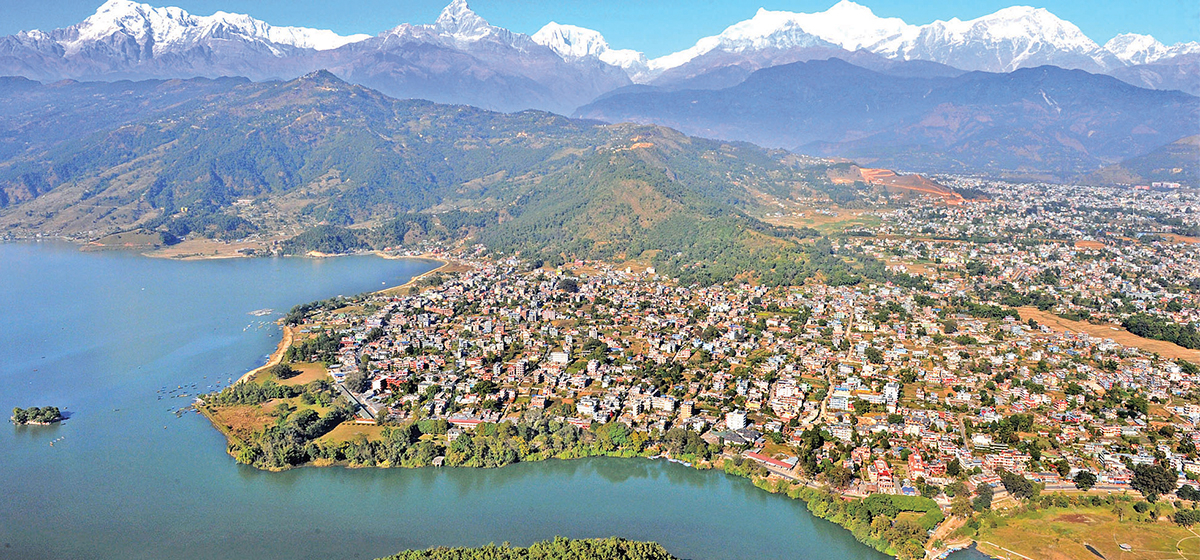
Pokhara has long been recognized as a gem in Nepal's tourism crown. Its stunning landscapes, beautiful lakes, and vibrant culture have drawn visitors from different parts of the world. Thus, the official declaration of Pokhara as the tourism capital of Nepal on Sunday comes as validation of its undeniable allure. However, mere words and titles alone will not suffice to harness the full potential of this picturesque city. The ceremony marking the declaration of Pokhara as the tourism capital of Nepal itself is a momentous occasion. The presence of Prime Minister Pushpa Kamal Dahal underscored the significance of this declaration, signifying the government's commitment to promoting Pokhara as a premier tourist destination. Yet, beyond the fanfare lies the stark reality that Pokhara's true potential remains untapped, largely due to poor infrastructure and untapped resources.
The declaration of Pokhara as a tourism capital reflects years of concerted efforts to position the city on the global tourism map. However, merely labeling Pokhara as the tourism capital will not magically transform it into a thriving tourist capital. Concrete actions are imperative to translate this symbolic gesture into substantive progress. Central to this endeavor is the urgent need for investment in tourist-friendly infrastructure and full-fledged operation of the newly-built Pokhara Regional International Airport. While Pokhara's natural splendor is undoubtedly its greatest asset, the lack of adequate facilities and amenities undermine the overall tourist experience. From transportation networks to accommodation options, significant upgrades are imperative to accommodate the influx of visitors that Pokhara's newfound status is likely to attract. Improved roads, full-fledged operation of the international airport, and diversified lodging options could be a few areas where government authorities and other stakeholders can work.
The development of diverse tourist attractions in Pokhara's surrounding areas is crucial to sustainably harness Pokhara's tourism potential. Sustainable tourism holds the key to unlocking Pokhara's long-term prosperity, balancing economic growth with environmental conservation and social equity. While the city's iconic landmarks such as Phewa Lake and Sarangkot are undeniably captivating, diversification is key to prolonging visitors’ stays and enhancing overall satisfaction. Furthermore, investing in promoting ecotourism initiatives will not only distribute tourist traffic more evenly but also contribute to the preservation of Nepal's rich natural heritage. As a newspaper, we see the need for concerted efforts to leverage Pokhara's cultural and historical heritage to enrich the tourists’ experience. Initiatives aimed at preserving traditional crafts, promoting indigenous festivals, and showcasing local cuisine will equally help in this regard. The true measure of success of the declaration of Pokhara as a tourism capital lies in tangible improvements in infrastructure, diversification of tourist attractions, and sustainable tourism practices that follow. We wish to see all stakeholders involved working towards these ends.
You May Like This
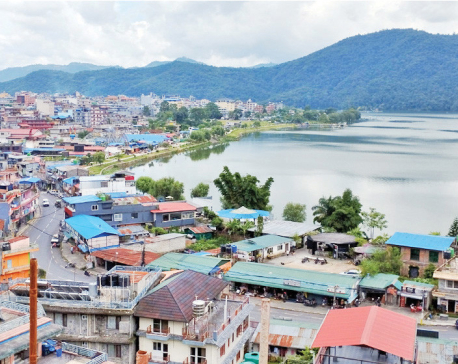
Pokhara declared as Nepal’s tourism capital
POKHARA, March 17: Pokhara has been officially declared as the tourism capital of Nepal. Despite being recognized as a tourism... Read More...

Pokhara to be declared Nepal’s tourism capital
KASKI, March 15: Pokhara is to be declared as the tourism capital of the country. Pokhara will be declared the... Read More...
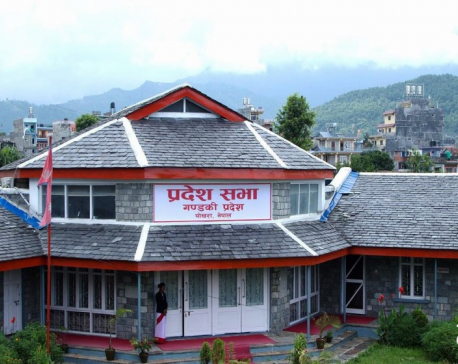
Gandaki Province requests federal govt to declare Pokhara as tourism capital of Nepal
POKHARA, Nov 17: The provincial government of Gandaki has urged the federal government for the second time to declare Pokhara... Read More...



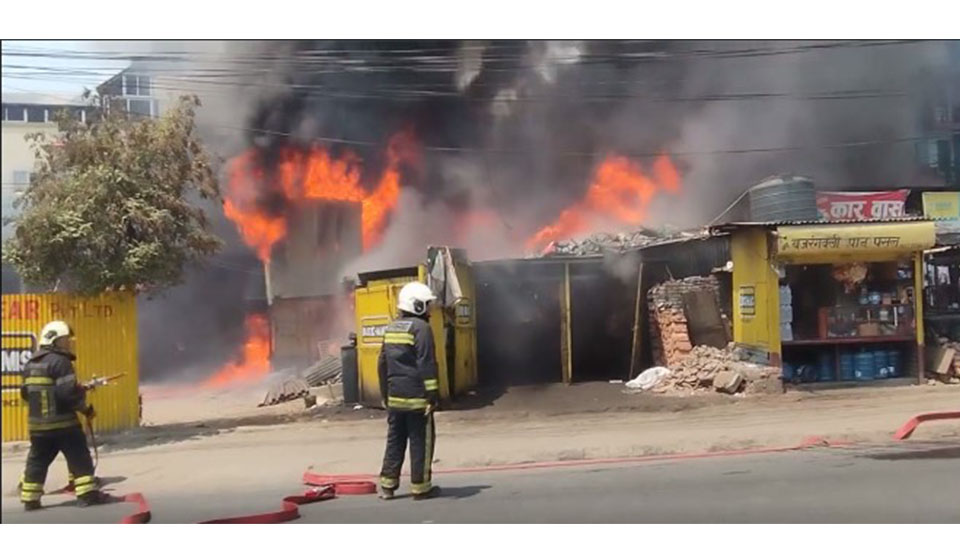
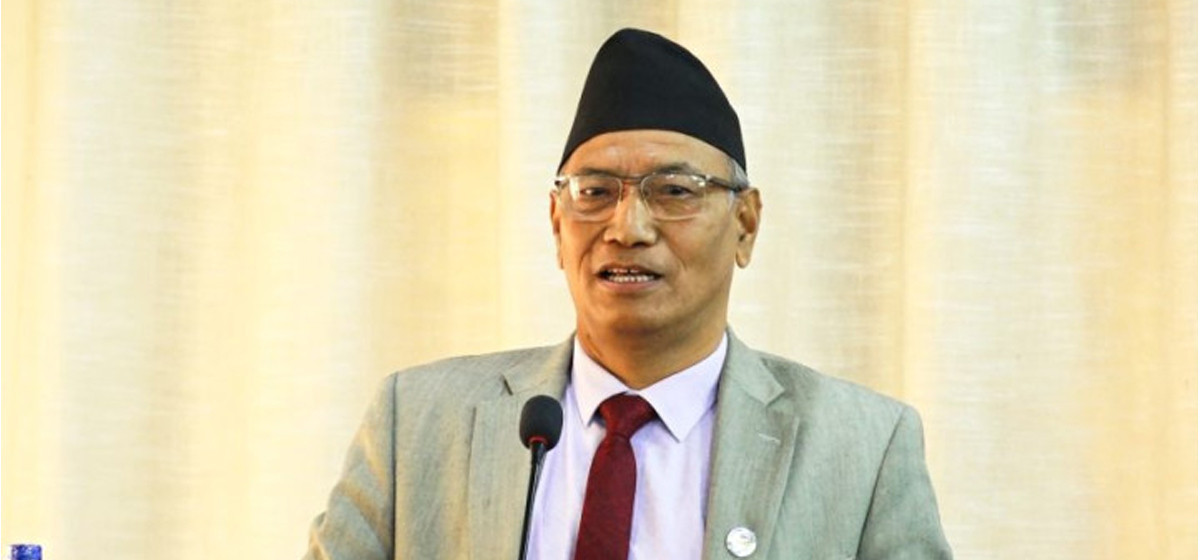

Just In
- People urged to take caution as Terai region including Lumbini province experiences sweltering heat
- School Principal arrested for allegedly facilitating fake examinees in Grade XII examination
- Stepdaughter arrested on charges of murdering her mother
- Five shops and a vehicle workshop gutted in Shankhamul fire
- Two agreements between private sector entities signed at Nepal Investment Summit
- Shrestha appointed Acting Chairman of JSP
- World Day for Safety and Health at Work being observed today
- Almost all sectors of Nepal are open for foreign investment: NC President Deuba







-1200x560-wm_20240427144118.jpg)




Leave A Comment